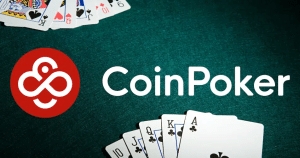The President of the Philippines has issued an executive order terminating all offshore gaming operations in the country, responding to escalating public worries over crime, social issues, and exploitation linked to these activities. This move, aimed at both licensed and illegal operators, reflects concerns about the negative impact on public welfare and national security. The Department of Finance noted that the costs associated with the offshore gaming industry, such as rising crime rates and social instability, significantly outweigh any economic benefits derived from its operations. President Marcos reinforced the government’s duty to protect national security, ensure public order, and uphold the integrity of the social fabric for the benefit and safety of its citizens.
Offshore Gambling in the Philippines
Offshore gambling in the Philippines has evolved into a substantial industry, with the Philippine Offshore Gaming Operators (POGOs) playing a pivotal role in generating billions in economic activity. According to data from the Philippine Amusement and Gaming Corporation (PAGCOR), POGOs contributed approximately PHP 7 billion in 2020 in regulatory fees alone. The industry provides employment opportunities to over 30,000 Filipino workers and hosts thousands of foreign employees, significantly impacting the real estate sector, as many operators lease office spaces and employee housing. While the offshore gaming market primarily targets foreign clients, it brings in tax revenue and bolsters associated industries like hospitality, retail, and technology.
Economic contributions aside, the POGO industry has raised social and regulatory concerns, particularly around taxation and criminal activities. A study conducted by the Anti-Money Laundering Council (AMLC) reported that the offshore gaming sector poses a risk for money laundering, with millions of pesos traced to questionable transactions from POGO-linked operations. The Philippine government has responded by strengthening its regulatory framework. In 2019, the Bureau of Internal Revenue (BIR) tightened tax enforcement for foreign POGO employees, aiming to collect around PHP 32 billion in taxes annually. This stricter approach has led to the closure of several non-compliant operators, underscoring the government’s intent to mitigate negative externalities while maximizing economic benefits.
The social impact of offshore gambling extends beyond economic statistics, touching on issues such as diplomatic tensions and worker welfare. Concerns have arisen over alleged illegal recruitment, poor working conditions, and criminal syndicates taking advantage of the industry. For instance, increased crime rates linked to POGO operations, including kidnappings and fraud, have prompted calls for stricter law enforcement. Neighboring countries, such as China, have expressed disapproval, emphasizing the adverse impact on their citizens who participate in such activities. While the Philippines benefits from revenue streams, addressing these challenges is critical to sustaining the industry’s growth in a manner that respects social norms, national security, and international diplomatic relations.
Execution and Enforcement of the Ban
Executive Order (EO) 74 introduces two dedicated working groups to manage both the enforcement of this ban and its economic implications. The first group, known as the Technical Working Group (TWG) on Employment Recovery and Reintegration, will primarily assist displaced Filipino workers. Chaired by the Philippine Amusement and Gaming Corporation (PAGCOR) and co-chaired by the Department of Labor and Employment, this group’s mandate includes creating reskilling and upskilling opportunities to ease the transition of affected workers into other sectors.
Comprehensive support will also be provided by the Department of Finance, Department of Trade and Industry, and the Department of Social Welfare, among other agencies. The second working group, tasked with combating illegal offshore gaming operations, will be led by the Presidential Anti-Organized Crime Commission, with the Department of Justice serving as co-chair. This group will focus on shutting down operators, pursuing investigations, prosecuting violators, and deporting foreign workers linked to illegal gaming activities, while collaborating closely with local authorities and community organizations.
The government’s commitment to dismantling all remaining offshore networks involves coordination among numerous agencies, including the Philippine National Police, Bureau of Immigration, National Bureau of Investigation, and the Anti-Money Laundering Council. These bodies will target remaining gaming networks, preventing new ones from emerging. Efforts also extend to the Department of Human Settlements and Urban Development, which is collaborating with homeowners’ associations to eliminate gaming operations in residential areas, while the Department of Tourism will ensure compliance with the ban by monitoring establishments. The Philippine Senate has expressed strong support for EO 74, with Senators Joel Villanueva and Sherwin Gatchalian commending the move due to the POGO industry’s alleged links to crime and instability.
Villanueva emphasized that EO 74 aligns with ongoing legislative initiatives to enact a permanent ban on offshore gaming. Proposed bills like the Anti-POGO Act (Senate Bill No. 2752) and the Anti-Online Gambling Act (Senate Bill No. 1281) are under review to strengthen the regulatory framework against e-gambling. Following its publication in the Official Gazette, EO 74 became effective, prompting PAGCOR and the Bureau of Internal Revenue to expedite fee and tax collections to finalize offshore gaming operations. The government anticipates swift compliance with the ban, aiming for enhanced public safety, reduced organized crime, and improved protection for vulnerable groups. In the first half of 2023, Philippine authorities conducted 41,000 arrests related to illegal gambling, underscoring the magnitude of the issue. Recently, authorities detained Lyu Dong, known as the “Godfather” of the POGO sector, further demonstrating the government’s determination to address concerns surrounding offshore gaming.

CoinPoker: A Crypto-Centric Poker Platform Redefining Online Gaming
CoinPoker brings a fresh take on poker by combining traditional gameplay with cryptocurrency, offering a unique experience tailored to crypto enthusiasts. Built on blockchain technology, the platform ensures a decentralized and private gaming environment. With a strong focus on poker and a few select sports betting options, CoinPoker has yet to capture a dominant share of the broader global gambling market but remains a compelling choice for dedicated online poker players. Here’s an in-depth look at how CoinPoker works and what sets it apart.
A Blockchain-Based, Cryptocurrency-Driven Platform
CoinPoker made its debut in 2017, initially offering poker games without real-money wagers. By 2018, it transformed to allow betting using cryptocurrency, providing a new and exciting way to enjoy poker. Users can earn and wager with CoinPoker’s native token, CHP, alongside other major cryptocurrencies like Bitcoin and Ethereum. This system operates on Ethereum’s blockchain, enhancing transaction security and transparency. A key feature of CoinPoker is its blockchain-based Random Number Generator (RNG), which guarantees fair game outcomes, free from manipulation. Additionally, the platform prioritizes user privacy, keeping identities secure even during transactions.
Transparent Operations with Proof of Reserves
CoinPoker takes transparency seriously and operates under the Curaçao eGaming license, ensuring adherence to strict regulatory standards. The platform employs a Proof of Reserves (PoR) system to verify it holds sufficient funds to cover all player deposits, maintaining financial integrity. Recent data indicates approximately $16 million in player deposits, backed by total reserves of $16.75 million—providing 105% coverage. This practice separates user funds from corporate assets, further reinforcing trust and reliability among its players.
Fair Play and Responsible Gaming Initiatives
To uphold fairness, CoinPoker uses a blockchain-powered RNG system, ensuring every game is fair and immune to manipulation. The platform has anti-fraud measures in place to prevent cheating and maintains competitive odds in its sports betting offerings. CoinPoker also provides a mobile app for Android and iOS users, offering seamless gaming access on the go. Committed to responsible gaming, the platform provides tools to help users manage their gameplay habits, self-exclusion options for those struggling with gambling addiction, and a dedicated responsible gaming officer to ensure compliance with industry standards.
Privacy-Centric and Quick Crypto Transactions
CoinPoker stands out for its commitment to maintaining the privacy of all transactions. Players can deposit and withdraw using their preferred cryptocurrency wallets, ensuring a fast, discreet, and seamless user experience. This focus on privacy appeals to users who value discretion in their online gaming activities.
Engaging Promotions and High-Profile Poker Ambassadors
CoinPoker often hosts crypto giveaways and collaborates with prominent poker ambassadors to boost user engagement. One such ambassador, Bobby James, made headlines with a fifth-place finish at the 2024 EPT Cyprus Main Event, earning $271,400. To celebrate, CoinPoker featured James in a special Sunday giveaway event, inviting fan participation across multiple social media platforms. Another ambassador, Patrick Leonard, also performed well, finishing 28th and taking home $26,600. These partnerships and promotions are central to CoinPoker’s strategy, adding excitement and engagement opportunities for users.
CoinPoker’s own @BobbyJamesPoker is CRUSHING IT at EPT Cyprus! Correctly guess where he’ll finish on tomorrow’s final table and you could win $500! Comment your prediction with your CoinPoker username ⬇️ Entries closed when Day 6 kicks off #EPTCyprus #poker pic.twitter.com/o4ONirLKoS
— CoinPoker (@CoinPoker_OFF) October 19, 2024
A Distinctive Option for Crypto-Poker Fans
For poker enthusiasts seeking a secure and private platform powered by blockchain, CoinPoker offers a distinctive and engaging option. While its game selection may be more limited compared to some competitors, its strong focus on security, fairness, and responsible gaming makes it an appealing choice for players dedicated to poker and cryptocurrency.
Related News
Lucky Block Casino - Decentralized Gambling Platform

- Bet With Crypto - BTC, ETH, USDT, LBLOCK and More
- Live Dealers - luckyblock.com
- Rated Best New Crypto Casino - No KYC
- Thousands of Slots, Blackjack, Roulette Games



